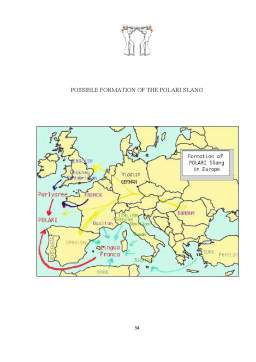Cuprins
- INTRODUCTION 4
- CHAPTER I ON SLANG 6
- 1.1. What is slang? 6
- 1.2. The history of slang 16
- 1.3. Who speaks slang and why? 18
- CHAPTER II GENDER AND SEXUAL SLANG 24
- 2.1. What is sexual slang? 25
- 2.2. Differences between genders in the knowledge and use of slang 29
- 2.3. Gender and Sexual slang 36
- CHAPTER III POLARI - A MALE SLANG 41
- 3.1. What is Polari? 41
- 3.2. The history of Polari 47
- 3.3. The origins of Polari 49
- CHAPTER IV DEMONSTRATING MALE PREDOMINANCE IN SLANG 55
- CONCLUSIONS 66
- APPENDIX 69
- REFERENCES 70
- ABSTRACT
Extras din proiect
The present project deals with the differences between males and females in the knowledge and use of slang. The hypothesis foregrounded by this paper is that males outscore females in creation, knowledge and use of slang, also that sexual slang is aimed at women. The theoretical part of the present project provides important arguments in favour of the hypothesis. While the practical part makes a great contribution in practical demonstration of the fact that slang is a male domain, i.e. it is more appropriate to males, as well as the fact that there are more sexual and derogatory slang terms describing women than men, i.e. sexual slang continues to be aimed at women who continue to be more centrally defined by their sexuality in the English society.
INTRODUCTION
In today’s English societies slang is very popular, especially among youngsters for whom its use represents something more than just a simple way of communication. From where I stand, research concerning the knowledge and use of slang is very important. For example, the study of gender-related slang and gender differences in the knowledge and use of slang, the topic of the present study, can offer insights into how the sexes are viewed and, perhaps, treated within a particular culture. Slang as a topic for research can also provide information concerning the degree to which the usage of slang has changed over a certain period of time, as well as changes in the way sexes are perceived within a society.
In addition, I chose to investigate this topic as I consider it an issue of actuality, which is often encountered nowadays.
The newness of the present project is exactly the fact that the study on gender-related slang provides information about the existence and the degree of development of sexism in a particular society. For example, if there exists more sexual and derogatory slang describing women than men in a particular culture, in this case it becomes obvious that sexual slang is aimed at females, who at their turn are viewed in terms of their sexuality and perceived more as sexual objects. The other thing that should be mentioned here is the fact that the present paper reveals the existence of a male slang, a gay male slang spoken in the 19th century in Britain, namely Polari.
The main hypothesis foregrounded in this paper is that males outscore females in creation, knowledge and use of slang, in other words slang is a male domain, also that there are more sexual slang terms describing women than men. And the purpose of the present project is to prove the truthfulness of this hypothesis, that actually males won this, figuratively speaking, “battle” for slang.
The present paper is structured in four chapters which, at their turn, are subdivided in subchapters. There is also an appendix included at the end of the paper which contains different opinions about slang of various writers and linguists.
In order to fully demonstrate this hypothesis, each chapter brings its contribution to the strong argument that sustains the idea. In the first chapter I speak about slang in general. I also point out the social group that uses slang the most, namely the youngsters and develop the idea that slang is the province of youth.
In the second chapter I explore the horizons of the relationship between gender and sexual slang. I also focus on the differences between males and females concerning the knowledge and use of gender-related slang.
The third chapter investigates the existence of a male slang, called Polari (from Italian “parlare”), the fact which represents a strong argument in favour of the hypothesis of my project. Polari is a British gay male slang that has almost died out and which was heavily spoken in the repressive period when the society was not ready for abnormalities of sexual behavior. Although it felt in disuse, some of its elements entered the mainstream of the English slang and are still used.
Preview document
Conținut arhivă zip
- Genders' Battle for Slang.doc









































































